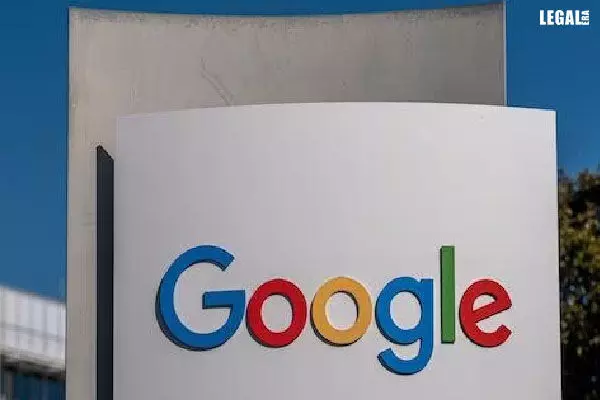- Home
- News
- Articles+
- Aerospace
- Artificial Intelligence
- Agriculture
- Alternate Dispute Resolution
- Arbitration & Mediation
- Banking and Finance
- Bankruptcy
- Book Review
- Bribery & Corruption
- Commercial Litigation
- Competition Law
- Conference Reports
- Consumer Products
- Contract
- Corporate Governance
- Corporate Law
- Covid-19
- Cryptocurrency
- Cybersecurity
- Data Protection
- Defence
- Digital Economy
- E-commerce
- Employment Law
- Energy and Natural Resources
- Entertainment and Sports Law
- Environmental Law
- Environmental, Social, and Governance
- Foreign Direct Investment
- Food and Beverage
- Gaming
- Health Care
- IBC Diaries
- In Focus
- Inclusion & Diversity
- Insurance Law
- Intellectual Property
- International Law
- IP & Tech Era
- Know the Law
- Labour Laws
- Law & Policy and Regulation
- Litigation
- Litigation Funding
- Manufacturing
- Mergers & Acquisitions
- NFTs
- Privacy
- Private Equity
- Project Finance
- Real Estate
- Risk and Compliance
- Student Corner
- Take On Board
- Tax
- Technology Media and Telecom
- Tributes
- Viewpoint
- Zoom In
- Law Firms
- In-House
- Rankings
- E-Magazine
- Legal Era TV
- Events
- Middle East
- Africa
- News
- Articles
- Aerospace
- Artificial Intelligence
- Agriculture
- Alternate Dispute Resolution
- Arbitration & Mediation
- Banking and Finance
- Bankruptcy
- Book Review
- Bribery & Corruption
- Commercial Litigation
- Competition Law
- Conference Reports
- Consumer Products
- Contract
- Corporate Governance
- Corporate Law
- Covid-19
- Cryptocurrency
- Cybersecurity
- Data Protection
- Defence
- Digital Economy
- E-commerce
- Employment Law
- Energy and Natural Resources
- Entertainment and Sports Law
- Environmental Law
- Environmental, Social, and Governance
- Foreign Direct Investment
- Food and Beverage
- Gaming
- Health Care
- IBC Diaries
- In Focus
- Inclusion & Diversity
- Insurance Law
- Intellectual Property
- International Law
- IP & Tech Era
- Know the Law
- Labour Laws
- Law & Policy and Regulation
- Litigation
- Litigation Funding
- Manufacturing
- Mergers & Acquisitions
- NFTs
- Privacy
- Private Equity
- Project Finance
- Real Estate
- Risk and Compliance
- Student Corner
- Take On Board
- Tax
- Technology Media and Telecom
- Tributes
- Viewpoint
- Zoom In
- Law Firms
- In-House
- Rankings
- E-Magazine
- Legal Era TV
- Events
- Middle East
- Africa
DCDRC Allows Complaint Against Google India For Services Provided Directly By Google LLC

DCDRC Allows Complaint Against Google India For Services Provided Directly By Google LLC
Orders Google India to refund the amount to the complainant and compensate him
The Ambala, Haryana bench of the District Consumer Disputes Redressal Commission has held Google India liable for deficiency in service for failure to provide upgraded storage space despite receiving payment from the complainant.
The bench comprising Neena Sandhu (president), Ruby Sharma (member) and Vinod Kumar Sharma (member) rejected the argument of Google India that storage services were provided by Google International LLC, a separate legal entity. The judges observed a direct relationship between Google India and Google LLC.
The matter pertained to the complainant, who on reaching the data storage capacity limit, needed additional space. He encountered a link purportedly from the Google team offering a purchase. While following the instructions provided by Google One, the complainant made several attempts for the purchase.
However, despite Rs.3900 being debited from his bank account, he received no additional storage facility. On requesting a refund from Google India, the latter refunded only Rs.1300 and refused Rs.2600.
Aggrieved by the situation, the complainant approached the DCRDC and filed a complaint against Google India.
On receiving a notice, Google India raised preliminary objections. It contended that it was a distinct legal entity incorporated under the Companies Act, 1956, with its registered office in Bengaluru, Karnataka. It focused on selling advertising space, marketing and software development solutions in India, much distinct from the services offered by Google LLC. It denied being the provider of Google One services that the US-based Google LLC offered.
The District Commission noted the substantial evidence provided by the complainant to establish a direct relationship between Google India, Google Inc, and Google One/LLC. It held that the documents, including Form MGT-7, Memorandum of Association, and List of shareholders and debenture holders, indicated the companies’ interconnection.
The documents highlighted the subsidiary and associate status of Google India under Google LLC and the operational presence of the entities from a shared corporate office in Gurugram, Haryana. The payments from Delhi by individuals associated with Google India further emphasized its connection.
Thus, the DCRDC held that since Google India had a direct relationship with Google LLC, it was liable for service deficiency.
The bench directed Google India to refund Rs.2600 to the complainant and compensate him by paying Rs.2000 for mental harassment and litigation costs.



